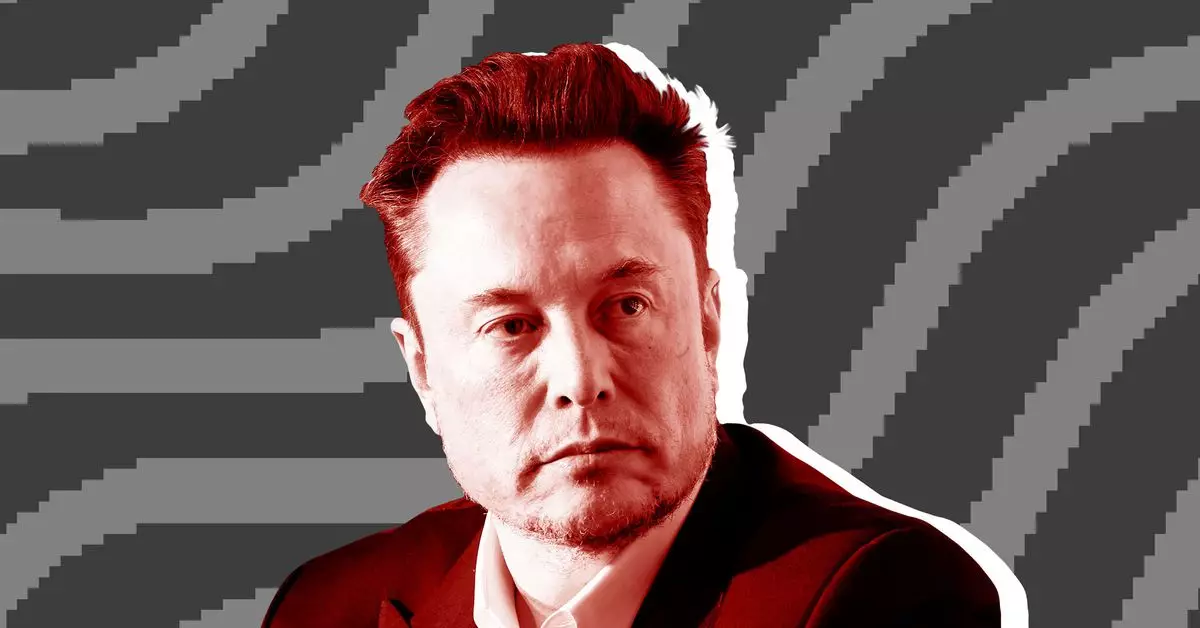In an unprecedented move that intertwines technology with governance, the President-elect Donald Trump has appointed tech figureheads Elon Musk and Vivek Ramaswamy to spearhead a newly established entity: the Department of Government Efficiency, aptly abbreviated as DOGE. This initiative, which aims to tackle long-standing bureaucratic challenges within the federal government, marks a significant departure from traditional governmental practices. By embracing a markedly entrepreneurial standpoint, this department could redefine the role of government in the American economy.
The overarching goal of DOGE is to streamline federal operations by dismantling bureaucracy, eliminating superfluous regulations, and reducing wasteful spending. As stated by Trump, the mission of the department is to “pave the way” for an administration focused on operational efficiency. This ambition resonates with a broader movement within the Republican Party, where calls for reforming government agencies have been echoed for decades. However, the practicality of such sweeping changes raises numerous questions. Musk’s previous suggestions for cost-cutting measures, including reductions to the defense budget and Social Security programs, underscore the delicate balance between financial prudence and social obligation.
What makes this administration’s approach particularly intriguing is the commitment to partner with entities operating outside of the traditional government framework. By leveraging the expertise of figures like Musk and Ramaswamy, the administration hopes to foster a culture of innovation akin to private sector practices. This unprecedented collaboration between tech entrepreneurs and government positions DOGE as a potential pioneer for future governance models. Many stakeholders and citizens alike are expressing skepticism regarding this strategy: can business-like efficiencies be effectively applied to a landscape filled with political complexities and public accountability?
Musk, notably influential in the technology sector, has highlighted the potential of his experience in transforming industries through innovative solutions. This brings to light the role of technology in modern governance. As DOGE embarks on its mandate, the integration of modern technological tools could facilitate clearer communication, improve data management, and foster transparency in government spending. The reliance on digital platforms for efficiency aligns well with current trends where technology is fast becoming indispensable to governmental operations.
Despite these ambitious plans, the practical realities of implementing reform are challenging. Musk’s notion of slashing $2 trillion from the government budget could lead to significant societal shifts and displace millions. Financial experts have pointed out that while curbing inefficiencies is vital, the astonishing goal set by Musk and Ramaswamy will likely meet resistance from established interest groups. The specter of drastic cuts brings to light the dichotomy between fiscal responsibility and the imperative to maintain essential social services. Striking this balance will require nuanced approaches and perhaps innovative financing strategies that have yet to be proposed.
The mixed reactions to Musk’s appointment reflect broader public sentiments surrounding governmental trust and efficacy. Many citizens hope that the introduction of DOGE will yield tangible benefits, while some remain skeptical about the feasibility of enacting lasting changes. As the department cycles toward its target completion date of July 4, 2026, the outcomes of these initiatives will undoubtedly be dissected by the media and the public alike. The true test will be whether they can enact changes that are not only impactful in the short-term, but also sustainable in nature.
As the U.S. stands on the precipice of a new governmental paradigm, the advent of the Department of Government Efficiency presents an opportunity rife with potential. If Musk and Ramaswamy can successfully navigate the complexities of bureaucracy while implementing innovative, data-driven strategies, we may witness the birth of a new model of governance that is more adaptable, streamlined, and responsive to the needs of its citizens. Only time will tell if this ambitious vision comes to fruition.

